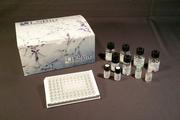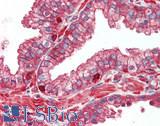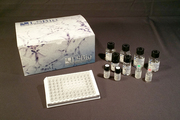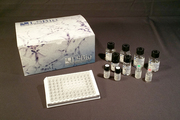Login
Registration enables users to use special features of this website, such as past
order histories, retained contact details for faster checkout, review submissions, and special promotions.
order histories, retained contact details for faster checkout, review submissions, and special promotions.
Forgot password?
Registration enables users to use special features of this website, such as past
order histories, retained contact details for faster checkout, review submissions, and special promotions.
order histories, retained contact details for faster checkout, review submissions, and special promotions.
Quick Order
Products
Antibodies
ELISA and Assay Kits
Research Areas
Infectious Disease
Resources
Purchasing
Reference Material
Contact Us
Locations
Orders Processing,
Shipping & Receiving,
Warehouse
2 Shaker Rd Suites
B001/B101
Shirley, MA 01464
Production Lab
Floor 6, Suite 620
20700 44th Avenue W
Lynnwood, WA 98036
Telephone Numbers
Tel: +1 (206) 374-1102
Fax: +1 (206) 577-4565
Contact Us
Additional Contact Details
Login
Registration enables users to use special features of this website, such as past
order histories, retained contact details for faster checkout, review submissions, and special promotions.
order histories, retained contact details for faster checkout, review submissions, and special promotions.
Forgot password?
Registration enables users to use special features of this website, such as past
order histories, retained contact details for faster checkout, review submissions, and special promotions.
order histories, retained contact details for faster checkout, review submissions, and special promotions.
Quick Order
| Catalog Number | Size | Price |
|---|---|---|
| LS-C391466-20 | 20 µg (0.2 mg/ml) | $371 |
| LS-C391466-100 | 100 µg (0.2 mg/ml) | $574 |
Monoclonal Mouse anti‑Human Nuclear Membrane Antibody (clone AE‑5, IF) LS‑C391466
Monoclonal Mouse anti‑Human Nuclear Membrane Antibody (clone AE‑5, IF) LS‑C391466
Antibody:
Nuclear Membrane Mouse anti-Human Monoclonal (AE-5) Antibody
Application:
ICC, IF
Reactivity:
Human
Format:
Unconjugated, Unmodified
Other formats:
Toll Free North America
 206-374-1102
206-374-1102
For Research Use Only
Overview
Antibody:
Nuclear Membrane Mouse anti-Human Monoclonal (AE-5) Antibody
Application:
ICC, IF
Reactivity:
Human
Format:
Unconjugated, Unmodified
Other formats:
Specifications
Description
Nuclear Membrane antibody LS-C391466 is an unconjugated mouse monoclonal antibody to human Nuclear Membrane. Validated for ICC and IF.
Host
Mouse
Reactivity
Human
(tested or 100% immunogen sequence identity)
Clonality
IgG1,k
Monoclonal
Clone
AE-5
Conjugations
Unconjugated
Purification
Protein G purified
Modifications
Unmodified.
Also available Azide-free, BSA-free.
Immunogen
Nuclei of myeloid leukemia biopsy cells were used as the immunogen for the Nuclear Membrane antibody.
Specificity
Human Nuclear Membrane
Applications
- ICC (0.5 - 1 µg/ml)
- Immunofluorescence (0.5 - 1 µg/ml)
Usage
This monoclonal antibody is part of a new panel of reagents, which recognizes subcellular organelles or compartments of human cells. These markers may be useful in identification of these organelles in cells, tissues, and biochemical preparations. It recognizes an antigen associated with the nuclear membrane expressed in human cells. It can be used to stain the nuclear membrane in cell or tissue preparations and can be used as a marker of the nuclear membrane in subcellular fractions. It produces a ring pattern around the nucleus of cells of normal and malignant cells and may be used to stain the nuclear membrane of cells in fixed or frozen tissue sections. It can be used with paraformaldehyde fixed frozen tissue or cell preparations and formalin fixed, paraffin-embedded tissue sections.,The nuclear envelope (also known as the perinuclear envelope, nuclear membrane, nucleolemma or karyotheca) is the double membrane of the nucleus that encloses genetic material in eukaryotic cells. It separates the contents of the nucleus (DNA in particular) from the cytosol (cytoplasm). Numerous nuclear pores are present on the nuclear envelope to facilitate and regulate the exchange of materials (for example, proteins and RNA) between the nucleus and the cytoplasm. The space between the two membranes that make up the nuclear envelope is called the perinuclear space (also called the perinuclear cisterna), and is usually about 20 - 40 nm wide. Each of the two membranes is composed of a lipid bilayer. The outer membrane is continuous with the rough endoplasmic reticulum. The inner membrane is erected upon the nuclear lamina, a network of intermediate filaments made of lamin, that plays a role in mitosis and meiosis. The type of lamins present are A, B1, B2, and C. The nuclear envelope may also play a role in the disposition of chromatin inside the nucleus. The lamina acts as a site of attachment for chromosomes. It also acts like a shield for the nucleus. During prophase in mitosis, the chromatids begin condensing to form chromosomes, and the nuclear envelope begins to disintegrate. During metaphase, the nuclear envelope is completely disintegrated, and the chromosomes can be pulled apart as chromatids by the spindle fibers. Optimal dilution of the Nuclear Membrane antibody should be determined by the researcher.
Presentation
1X PBS, 0.1 mg/ml BSA, 0.05% sodium azide
Storage
Store at 2°C to 8°C.
Restrictions
For research use only. Intended for use by laboratory professionals.
Publications (0)
Customer Reviews (0)
Featured Products
Species:
Human
Applications:
ICC, Immunofluorescence
Species:
Human, Monkey, Mouse, Rat, Dog
Applications:
IHC, IHC - Paraffin, Immunofluorescence, Western blot
Reactivity:
All species
Range:
123.5-10000 pg/ml
Request SDS/MSDS
To request an SDS/MSDS form for this product, please contact our Technical Support department at:
Technical.Support@LSBio.com
Requested From: United States
Date Requested: 4/19/2024
Date Requested: 4/19/2024














